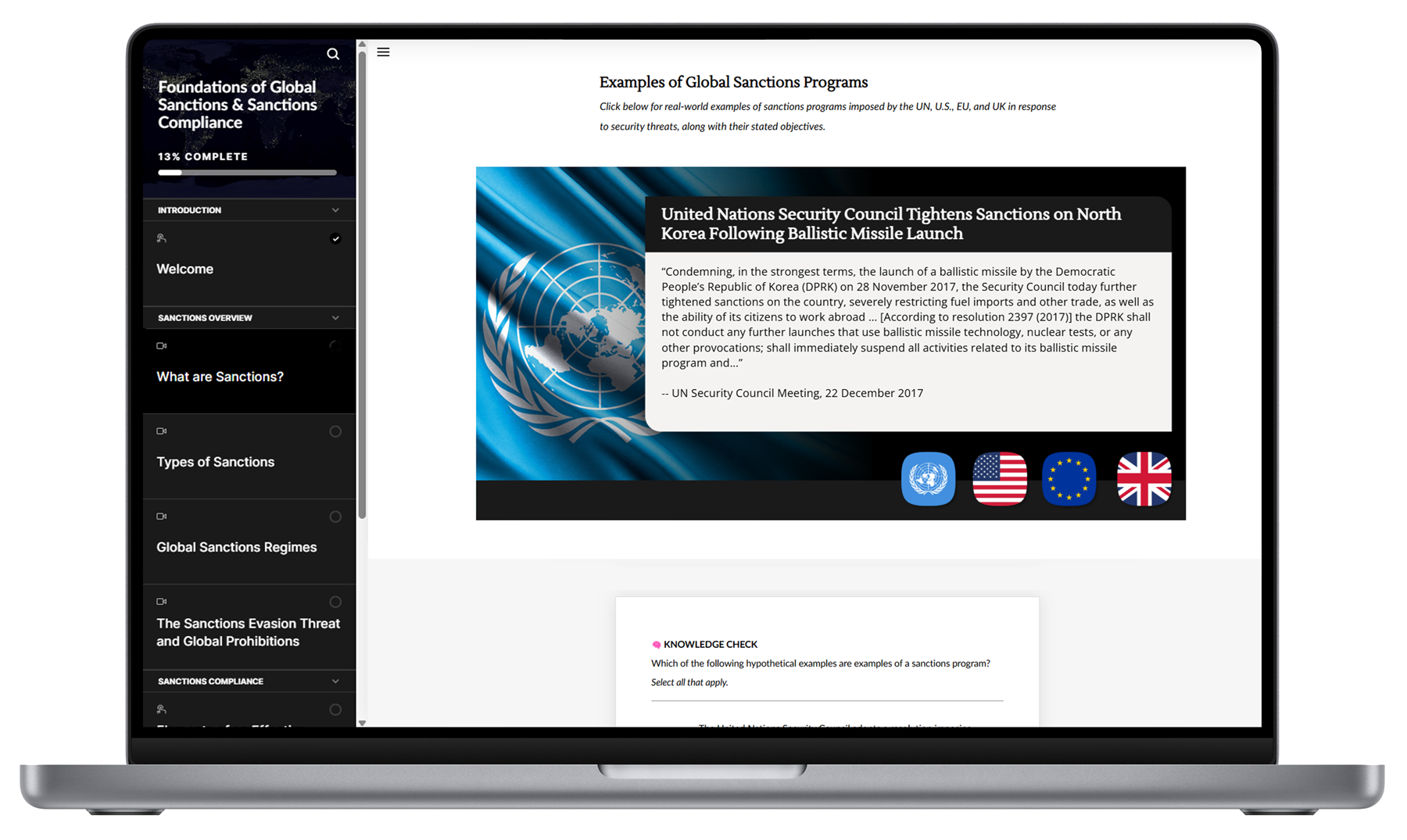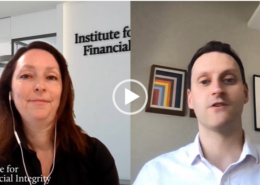Lifting Sanctions on Syria
Risks, Rewards, and Global Case Studies
📅 March 28, 2025
📅 March 28, 2025
Sanctions aim to pressure governments into making political changes or deterring behaviors deemed harmful. However, once the reasons for the sanctions have been addressed, the question arises whether to lift them and when. In the United States, the Department of Treasury’s Office of Foreign Assets Control (OFAC) enforces sanctions programs.
Lifting sanctions can bring economic recovery and improve diplomatic relations, but it also carries risks, including backsliding, corruption risks, and the provision of resources to illicit actors. The United States maintains the most comprehensive sanctions regime against Syria, including the risk of secondary sanctions on foreign entities transacting with the Syrian government and sanctioned Syrian persons, and designation of the country as a state sponsor of terrorism. The United Nations, the EU, and the UK, as well as other European countries also imposed additional sanctions against Syria in 2011.
Since the fall of the Assad regime in December 2024, human rights activists and other global organizations have been advocating for the lifting of sanctions to support Syria’s rebuilding after nearly 14 years of destruction. Several case studies, such as sanctions relief for Sudan in 2017 and the U.S. continued sanctions approach to the situation in Venezuela, provide a possible roadmap and complexities for U.S. sanctions relief for Syria, as well as challenges for U.S. and global financial institutions. Financial institutions will be faced with the difficult task of ensuring compliance with an evolving regulatory framework while mitigating risks associated with illicit finance. Reintegrating Syria into the global financial system will require institutions to navigate shifting policies, carefully assess risks, and ensure that financial flows support legitimate economic recovery and are not exploited by bad actors.
What Does it Mean to Lift Sanctions?
Lifting sanctions refers to the removal or easing of restrictive measures that were imposed on an individual, entity, or jurisdiction. In the case of sanctioned jurisdictions, the process involves negotiations between the sanctioning powers and the targeted nation, often in the context of diplomatic efforts or as a response to positive changes within the sanctioned country. Lifting sanctions may occur when a country begins complying with international norms or specific demands, such as halting illegal activities or addressing human rights abuses. For instance, when Sudan took steps to improve its counterterrorism efforts, it found sanctions relief on the horizon in 2017 and the removal from the State Sponsor of Terrorism list in 2021.
The decision to lift sanctions typically comes after careful assessments of whether the targeted country’s behavior has sufficiently changed. In some cases, sanctions are removed in phases, as countries may not be able to completely meet the conditions for full removal of designations. However, lifting sanctions is not without its own set of risks.
Risks of Lifting Sanctions
Despite the potential benefits, lifting sanctions carries several risks. One of the most immediate concerns is the possibility of undermining the objectives that the sanctions were meant to achieve. OFAC often enforces sanctions to pressure the sanctioned party to change its behavior, whether by curbing terrorism activity, stopping human rights abuses, or halting military aggression. Lifting sanctions too soon or without fully realizing the desired outcomes may result in bad actors exploiting decreased restrictions to conduct illicit activity.
Additionally, there is the risk that an entity may return to its previous harmful activities once sanctions are lifted. This reversion can happen if there are no mechanisms in place to ensure compliance with new commitments, which is why the United States often issues general licenses for limited sanctions relief that can quickly be revoked or allowed to lapse in cases of backsliding. If a previously designated person or regime reverts to old habits, original sanctions may need to be reinstated, complicating international relations and diminishing the effectiveness of sanctions as a diplomatic tool.
Finally, lifting sanctions could also lead to economic disruptions. While trade restrictions may hurt some sectors of society, removing these restrictions might initially cause economic instability, especially if a country is unprepared to integrate fully into the global economy. In many cases, lifting sanctions can bring a surge of foreign investment, but this can be a double-edged sword if the country lacks the infrastructure to manage it. With Syria’s transitional government facing evolving political uncertainty and weak institutional controls, corruption may thrive in the absence of strong regulatory oversight. A sudden influx of foreign aid and investment combined with limited transparency may create opportunities for illicit financial flows and corruption, such as the diversion of funds away from rebuilding efforts.
Case Study 1: Sudan’s Sanctions Relief in 2017
In 1997, the United States imposed comprehensive sanctions on Sudan, citing its support for terrorism and its role in the Darfur conflict. The sanctions had severe economic impacts, including the country’s inability to access global financial markets. By 2017, however, Sudan had made notable strides in changing its behavior, particularly in its cooperation in counterterrorism efforts and improving relations with the United States. As a result, in January 2017, President Barack Obama partially lifted sanctions on Sudan before he left office.
The decision to ease sanctions was based on Sudan’s efforts to meet certain conditions, including reducing its support for terrorism, improving humanitarian access in conflict zones, and making progress on peace initiatives. For many, the move represented a significant diplomatic achievement, signaling that sanctions could be used to encourage positive behavior. The United States recognized Sudan’s efforts in combating terrorism, particularly its cooperation with counterterrorism initiatives in the region.
However, the lifting of sanctions did not immediately translate into economic prosperity for Sudan. Despite the relief, Sudan faced ongoing challenges. The country continued to grapple with internal conflicts and economic difficulties, and critics argued that the government’s commitment to reforms was insufficient. Moreover, Sudan’s political system remained deeply authoritarian, and opposition groups criticized the United States for lifting sanctions without fully addressing human rights abuses.
In May 2023, President Biden issued EO 14098 imposing sanctions on individuals destabilizing Sudan and hindering its democratic transition. This action underscores the risk of backsliding in nations where sanctions have been lifted, highlighting the necessity for sustained vigilance to ensure lasting democratic progress.
Thus, while the lifting of sanctions allowed Sudan to access international financial markets, it also exposed the risk of lifting sanctions prematurely, before comprehensive political and social reforms could be fully realized.
Case Study 2: Sanctions on Venezuela
Venezuela’s complex sanctions story involves a long history of economic and political crises. Beginning in 2015, the United States and several European countries imposed sanctions on Venezuela in response to the government’s repression of political opposition, human rights abuses, and the erosion of democratic institutions. The sanctions targeted individuals and entities close to President Nicolás Maduro, including officials, businesses, and the state-run oil company, Petróleos de Venezuela, S.A. (PDVSA).
The sanctions were a response to the Maduro government’s increasing authoritarianism and its failure to address the economic disaster, which included hyperinflation, widespread shortages of food and medicine, and a dramatic decline in oil production. They aimed to pressure the Maduro regime into restoring democratic processes, respecting human rights, and addressing the economic collapse that had plunged the country into crisis. The U.S. sanctions were reinforced over time, targeting Venezuela’s oil exports, which make up the majority of the country’s revenue.
Despite these sanctions, the Venezuelan government did not make the necessary political changes. Instead, the Maduro regime responded with further crackdowns on opposition groups, limiting freedoms and suppressing protests. Attempts to lift sanctions or ease their enforcement have been met with resistance, both from the Venezuelan government and from other international actors. Some advocates have argued that the sanctions exacerbate the suffering of ordinary Venezuelans, with the country experiencing a humanitarian crisis due to the economic collapse.
For Venezuela, the risks of lifting sanctions are particularly high. In April 2024, the Biden administration reinstated sanctions on Venezuela just six months after easing them through several general licenses. Lifting sanctions without significant political reforms could reward a government that has continued to violate human rights and undermine democratic principles.
The fall of the Assad regime in December 2024 has reignited discussions about the future of Syria and the potential lifting of international sanctions. Syria has endured one of the most devastating civil wars in recent history, resulting in widespread destruction, the displacement of millions, and deep economic crisis. Advocates argue that lifting sanctions is essential for facilitating humanitarian aid, rebuilding infrastructure, and restoring basic economic functions.
The United States responded to the fall of the Assad regime by issuing General License (GL) 24 to expand authorizations for activities and transactions in Syria through July 7, 2025. The GL was meant to ensure that U.S. sanctions do not impede activities to meet basic human needs, including the provision of public services or humanitarian assistance.
Learn more about OFAC’s GL24 and Syria sanctions relief after the fall of the Assad regime on December 8, 2024.
The United States has not yet rescinded sanctions on Syria, and although certain transactions with Syria’s transitional government are authorized, direct transfers to those blocked by U.S. terrorism and Syria sanctions authorities are still prohibited. Therefore, multinational organizations must exercise caution to ensure that their transactions in Syria avoid involvement with designated entities.
The prospect of lifting U.S. sanctions on Syria entirely raises complex questions. One of the immediate challenges is the U.S. uncertainty toward Syria’s transitional government, which is currently lead by opposition forces from Hay’at Tahrir al-Sham (HTS), which was designated as a foreign terrorist organization (FTO) in May 2018. The United States did, however, remove the $10 million bounty on the group’s leader and Syria’s interim president Ahmed al-Sharaa (previously known as Abu Mohammad al-Jolani).
From an economic perspective, Syria’s economy will likely struggle to reintegrate into global markets. Infrastructure, including banking systems and industrial capacity, has been under the sole control of the fallen Assad regime, and foreign investors may be hesitant to place funds into the country without guarantees of stability. Similar to Sudan’s experience, any immediate gains from sanctions relief could be offset by lingering political instability and economic uncertainty.
Internationally, global powers, including the United States, European Union, and United Nations (which includes Russia, the Assad regime’s long-term ally), are taking varied approaches to easing sanctions on Syria, reflecting differing geopolitical interests and strategic priorities. These differing strategies highlight the complexities of reintegrating Syria into the global economy while balancing the need for humanitarian support, economic recovery, and safeguards against instability.
The cases of Sudan and Venezuela highlight the delicate balance between promoting positive change and managing the risks of inadvertently rewarding harmful behavior. In Sudan, sanctions relief brought limited benefits amidst ongoing challenges, with certain sanctions reinstated after the military’s seizure of power in October 2021 and further violence in 2023.
Venezuela’s sanctions remain in place, and general licenses that provided partial sanctions relief to the country were either reversed or allowed to expire because Nicolás Maduro has failed to uphold the commitments outlined in a roadmap for democratic elections in 2024.
For Syria, the international community faces an unprecedented opportunity to support rebuilding efforts, but it must do so cautiously, ensuring that sanctions relief is tied to meaningful and sustainable progress. The EU in February 2025 suspended several restrictive measures against Syria to support the peaceful and inclusive political transition and economic recovery in the country. Restrictive measures that were removed included several Syrian banks and sectoral measures in the energy and transport sectors. Most recently on March 6, the UK lifted asset freezes on 24 Syrian entities, including the Central Bank of Syria, Syrian Arab Airlines, and several energy companies.
It’s important to note that most of the sanctions imposed on Syria target the Assad regime and regime officials, which are no longer present in Syria. Political and economic stability can also help the 90% of the population that lives below the poverty line. Removing sanctions on Syria will help facilitate the flow of reconstruction aid, but caution is needed to ensure aid is not misappropriated by bad actors.

Our newly released Foundations of Global Sanctions course offers a comprehensive look at navigating the complexities of global sanctions. Other relevant courses offered include Foundations of UK Sanctions and Foundations of EU Sanctions.
Learn more and strengthen your compliance skills today.









 Export Controls, Ethics & Human Rights in Global Trade
Export Controls, Ethics & Human Rights in Global TradeThis site uses cookies. By continuing to browse the site, you are agreeing to our use of cookies.
Accept settingsHide notification onlySettingsWe may request cookies to be set on your device. We use cookies to let us know when you visit our websites, how you interact with us, to enrich your user experience, and to customize your relationship with our website.
Click on the different category headings to find out more. You can also change some of your preferences. Note that blocking some types of cookies may impact your experience on our websites and the services we are able to offer.
These cookies are strictly necessary to provide you with services available through our website and to use some of its features.
Because these cookies are strictly necessary to deliver the website, refusing them will have impact how our site functions. You always can block or delete cookies by changing your browser settings and force blocking all cookies on this website. But this will always prompt you to accept/refuse cookies when revisiting our site.
We fully respect if you want to refuse cookies but to avoid asking you again and again kindly allow us to store a cookie for that. You are free to opt out any time or opt in for other cookies to get a better experience. If you refuse cookies we will remove all set cookies in our domain.
We provide you with a list of stored cookies on your computer in our domain so you can check what we stored. Due to security reasons we are not able to show or modify cookies from other domains. You can check these in your browser security settings.
These cookies collect information that is used either in aggregate form to help us understand how our website is being used or how effective our marketing campaigns are, or to help us customize our website and application for you in order to enhance your experience.
If you do not want that we track your visit to our site you can disable tracking in your browser here:
We also use different external services like Google Webfonts, Google Maps, and external Video providers. Since these providers may collect personal data like your IP address we allow you to block them here. Please be aware that this might heavily reduce the functionality and appearance of our site. Changes will take effect once you reload the page.
Google Webfont Settings:
Google Map Settings:
Google reCaptcha Settings:
Vimeo and Youtube video embeds:
You can read about our cookies and privacy settings in detail on our Privacy Policy Page.
Privacy Policy